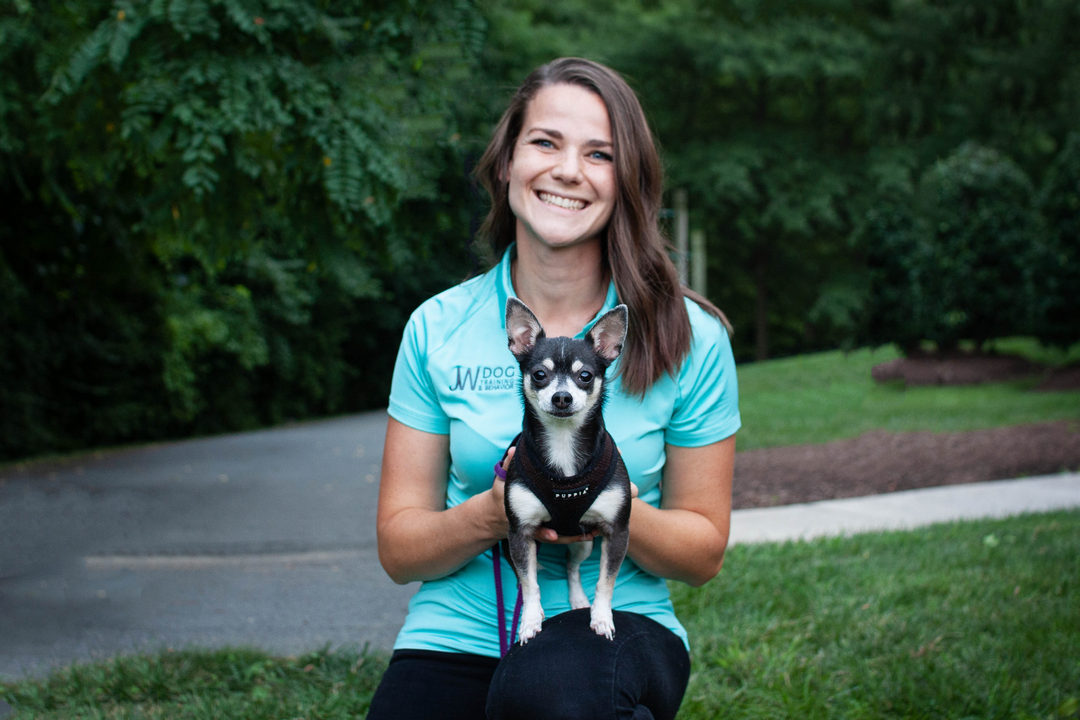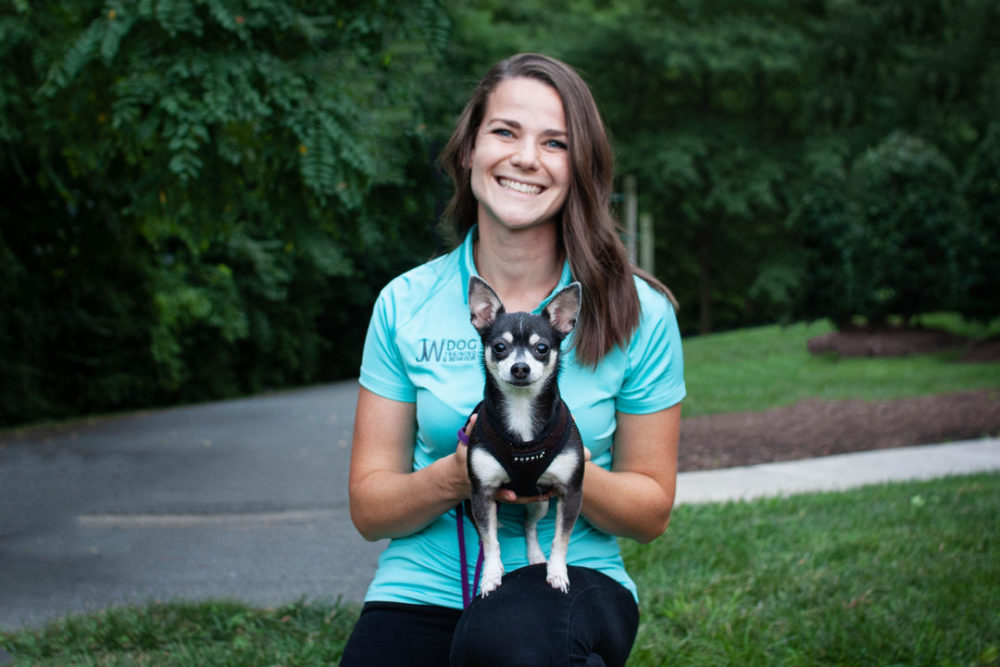Q: Tell us about the first animal you ever trained.
A: I grew up riding horses, so my Thoroughbred mare Marley was the first animal I trained. Unfortunately, the training was largely pressure-/release-based (negative reinforcement). It wasn’t until much later, as an adult, that I discovered positive reinforcement through dog training.
Q: Was there a particular dog/animal in your life that was your most important teacher?
A: Right after college I fostered a handful of shelter dogs. One of them, a young female pit mix named Johnnie Cash, was a rambunctious and sometimes difficult adolescent. She responded well to clicker training, but there were some behaviors I didn’t have the knowledge base to address properly at that time. During one incident, when she was jumping up and leash-biting, I got so frustrated that I raised my voice with her. She recoiled from me immediately and gave me the saddest, most confused expression that instantly broke my heart. At that moment, I committed to force-free training because I never wanted to break an animal’s trust again.
Q: What is your favorite activity or sport that you do with your own dog(s)?
A: My little chihuahua is fearful, anxious, and reactive, and I’ve really enjoyed helping her overcome some of her fears, specifically during our daily walks. We play a lot of training games on walks when she sees triggers. Behavior modification isn’t necessarily flashy or exciting, but Lola and I find it really fun. It has definitely strengthened our bond.
Q: What is your proudest training moment?
A: One recent moment that comes to mind happened when the industry switched to virtual training in response to the COVID-19 shutdown. I was able to coach a client through the process of teaching their dog how to pick up his toys and drop them in a bucket, a challenging back-chaining procedure! It felt good to know my verbal instruction could accomplish this without any demonstrations or visuals.
Q: What does a typical day look like for you?
A: I am lucky to have days packed with client lessons! I usually wake up early and drink my coffee while walking my dog, Lola. A few times a week I try to fit in an Orangetheory class first thing so that I get my exercise out of the way. After making breakfast and answering emails, I’m out the door to see clients. I typically have anywhere from three to five client appointments each day. For some lessons, I am working directly with the clients, and for others I am picking up the dog and working with the dog myself. I try to schedule my clients back-to-back so that I have a long but efficient day. At the end of client lessons, I head home for an evening of cooking, relaxing, and Netflix with my fiancé and Lola.
Q: How has completing the DTP and becoming a KPA CTP changed your life and career?
A: Completing the DTP course so early in my career set the standard for how I wanted to train using positive reinforcement. Being a CTP elevated my skill level above competing trainers in the area, setting my services apart. This advantage caused my client base to take off, giving me the chance to pursue training as a fulltime career.
Q: What do you like most about the DTP program?
A: The course’s focus on the science of learning and training mechanics makes it the best. Results are rooted in good training. The DTP program creates highly skilled trainers with a good eye for training choices that bring success to dogs and their owners.
Q: What excites you most about leading the DTP?
A: Helping create more trainers who will spread the word about good positive reinforcement training!
Q: What advice would you give to a new student?
A: Keep it simple. When training becomes overwhelming, we avoid it. Keep your training goals simple and attainable. Aim for five minutes a day a few times a week. Give yourself some wins and build from there. It’s important for human learners to be successful as well!


